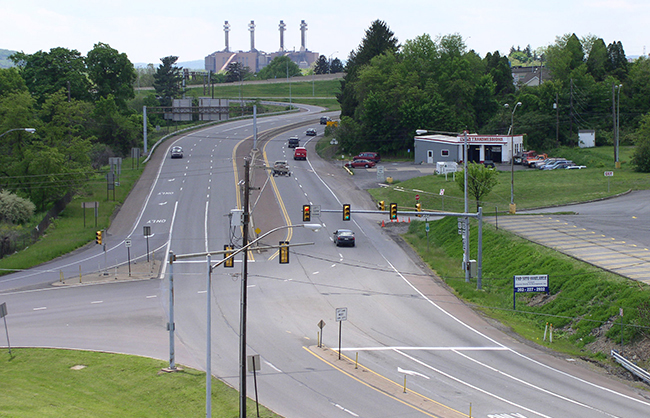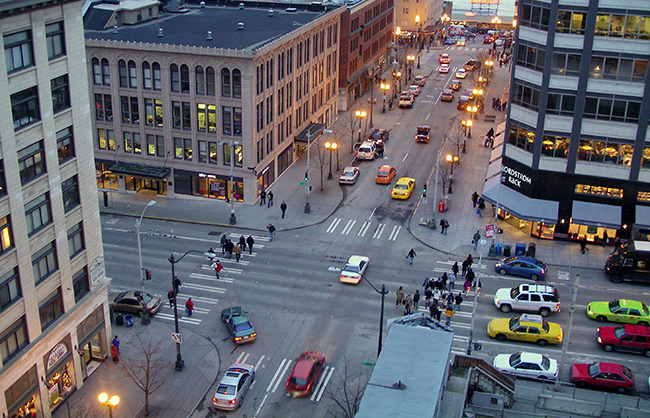Signals

Traffic signals assign the right-of-way between conflicting traffic flows at intersections. Traffic signals are usually justified after lesser forms of control, such as stop signs or yield signs, have proven to be ineffective. STOP signs don't work well when there is a lot of traffic or it is difficult for vehicles on the side roads to safely enter the intersection. Traffic signals can also better accommodate pedestrian crossings at intersections.

Traffic signals provide a solution to specific operational challenges, such as stopping heavy flows of traffic on a major roadway to permit crossing movements from intersecting minor streets. Signals can increase the traffic handling capacity of an intersection and reduce the occurrence of angle-type collisions when programmed for optimum timing efficiency. In addition to this reduction, signalized intersections may also experience an increase in rear-end collisions. However, traffic engineers are willing to trade off this increase for a decrease in the more severe angle-type accidents.
Signals only make traffic flow smoother and safer when used in proper situations. They are not the solution to all traffic problems. Specific guidelines, based on the MUTCD, should be followed to determine whether a traffic signal is necessary. The MUTCD states that traffic signals should not be installed unless one or more of the traffic signal warrants (as presented in the MUTCD) are met. However, the Manual also states that the satisfaction of a traffic signal warrant or warrants shall not in itself require the installation of a traffic control signal. A traffic control signal should not be installed unless an engineering study indicates that installing a traffic control signal will improve the overall safety and/or operation of the intersection. When justified and properly designed, a traffic signal will improve the operations of the traffic and pedestrian movements through an intersection, leading to an overall reduction in severe crash potential. In addition to the MUTCD (Part 4), designers should also consider state-specific supplements to the MUTCD that may deem only certain warrants valid in their particular state.

